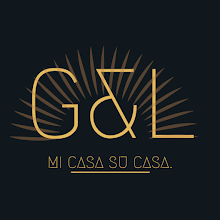For starters, happy new year. I have been mulling on doing a piece on intentionality for a while and, for sure, I have mentioned a bit of it to those that I have struck deeper notes of life with.
In that same vein, the new year, 2025 is here. I bet we all have to pour down what's been shelved up for a while. So here we go. Sometimes, a song lands in your ears at just the right moment—not just as a melody but as a reminder, a challenge, or even a confession. Khalid’s new track, “Make It Up to You,” is one of those songs. At its core, it’s a heartfelt anthem about taking accountability, learning from mistakes, and moving forward with purpose. But if you listen closely, it’s also a deeper exploration of what it means to live intentionally—in relationships, in personal growth, and even in the way we approach our daily lives.
The beauty of reflection lies in its ability to balance vulnerability and relatability. True intentionality is about taking accountability, acknowledging the ways we’ve fallen short, and expressing a deep desire to do better. It’s not just about saying sorry—it’s about proving it through actions.
And isn’t that what intentionality is all about? It’s not enough to recognize where you’ve gone wrong; you have to commit to making things right. Intentionality is the bridge between acknowledgment and action. It’s showing up with purpose, whether that’s for the people you care about or for yourself. The concept reminds us that while words can start a conversation, it’s our choices that write the story.
In a world that often prioritizes speed and convenience over depth and meaning, intentionality can feel like a radical act. How often do we rush through apologies, hoping to patch things up without truly understanding the hurt we’ve caused? How many times do we make promises we have no real plan to keep? This mindset challenges us to slow down, to mean what we say, and to align our actions with our words.
What is particularly powerful about this idea is its universality. You don’t need to be in a romantic relationship to connect with its message. Maybe it’s about mending a friendship, rebuilding trust with a family member, or even reconciling with parts of yourself that you’ve neglected. Intentionality applies to all of these moments—it’s a mindset that transcends specific contexts and touches every aspect of our lives.
Bringing intentionality into our lives starts with honest reflection. Acknowledging where we’ve faltered requires humility and courage, but it’s the first step toward growth. Clear communication follows—it’s not just about apologizing but about articulating why we’re sorry and what we plan to do differently, with sincerity and specificity. From there, purposeful action is crucial; words might inspire, but it is through actions that we build trust and show commitment. Finally, patience with oneself is essential, as growth is a process rather than an instant transformation. Giving yourself grace while striving to align intentions with behaviour makes the journey sustainable.
As you reflect on this approach, you’re left with more than just a framework for growth. You’re left with a challenge—to be intentional, to show up, and to make it right. In a world where it’s so easy to make excuses or simply move on, this mindset is a reminder that we owe it to ourselves and each other to dig deeper and do better.
What would it look like if we all lived with this kind of intentionality? If we approached our relationships, our goals, and even our mistakes with a commitment to learn and grow? It’s a question worth pondering—and maybe, just maybe, this can be the catalyst for finding your own answers.
Memoir #1 25


This comment has been removed by the author.
ReplyDelete